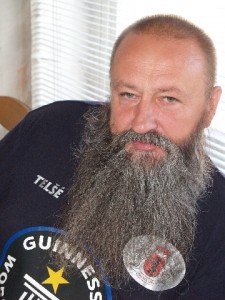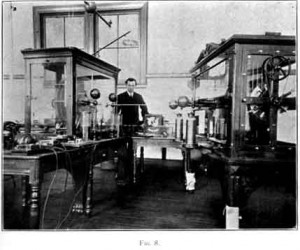
"Tom's death sentence was passed upon him some time ago, and the execution was carried out with great secrecy." (Image by TheWB.)
I fear making Afflictor into a pachyderm graveyard, having already posted about the executions of Old Timey elephants Topsy and Big Mary, but I found an interesting story in the October 3, 1902 edition of the Brooklyn Daily Eagle, with the subtitle: “Six Hundred Grains of Cyanide of Potassium Given to Him in Buckets of Bran.” It seems Tom the Trick Elephant, who had previously been a performer for P.T. Barnum, had grown unpredictably violent in the Central Park Zoo, and it was determined that he needed to be put down. An excerpt from the sad and colorful details:
“Whistling a lively tune but with a sad heart and an effort, to keep the tears from his eyes, Billy Snyder, the elephant trainer at the Central Park Zoo, this morning fed two buckets of bran mush to Tom, the world famous trick elephant, and in just fifty-six minutes the big beast lay stiff and stark upon the floor of his cage. For many years Snyder had carried Tom’s breakfast to him, and he said afterward that he felt guilty this morning when he gave the beast poison in his food–600 grains of cyanide of potassium. Tom made a brave struggle against death, but could not withstand the powerful drug.
Tom’s death sentence was passed upon him some time ago, and the execution was carried out with great secrecy. Only a small audience witnessed the killing of the famous beast, the general public being kept in ignorance of the time for the execution. Those present were Parks Commissioner Wilcox, Director Smith of the zoo, Dr. Edward N. Leavy, the park veterinary, Drs. Morill and Fisher, nerve specialists, Keepers Bill Snyder, Pete Shannon and John Rowley, chief of the taxidermy department of the American Museum of Natural History.

The bran tasted funny. (Image by Sklmsta.)
Those invited to the execution arrived at the arsenal at 8:30 o’clock and went to Director Smith’s office. From there they went to the elephant house and waited outside until the poison had been administered. For the last week Keeper Snyder has been feeding Tom two buckets of bran every morning at 9 o’clock, containing some foreign substance, generally corn or barley. This was to get the animal used to change, for elephants are very intelligent and suspicious, and Director Smith did not want the experiment to fail. At just 8:44 o’clock Snyder and Chief Rowley entered the elephant house went into Tom’s cage. The big beast was chained by the fore and hind feet. Snyder walked up to him and patted him gently on the trunk. Snyder was whistling merrily when he entered the cage, but there was a tone of sadness in his voice when he called out: ‘Here’s your breakfast, Tom.’
Just six minutes after the last pail had been fed to Tom he suddenly rolled over and fell on his left side, snapping off the left tusk as he fell. Those who were witnessing the execution thought that death was coming without a struggle, and one of them had just remarked that ‘it was all over’ when the beast arose to his feet again. Tom staggered as if intoxicated and his huge body swayed from side to side. He began to trumpet loudly, his tail swished nervously and he was plainly feeling the effects of the deadly poison. Then he had three falls in rapid succession, but he recovered each time and stood on his feet again. ‘He’s a hard one to kill,’ remarked Snyder.
At 9:12 o’clock there came a spasm which foretold death, and the big eyes closed and Tom lay there in semi-comatose condition for some minutes without moving a muscle. It was not until 9:40, just fifty-six minutes after the poison was administered, that Dr. Leavy, who had entered the cage, pronounced Tom dead.
‘Tom tried to kill me more than once,’ said Snyder, ‘but I don’t hold nothing against him. Anyway, I’m glad it’s over, for we were good friends once.'”





















